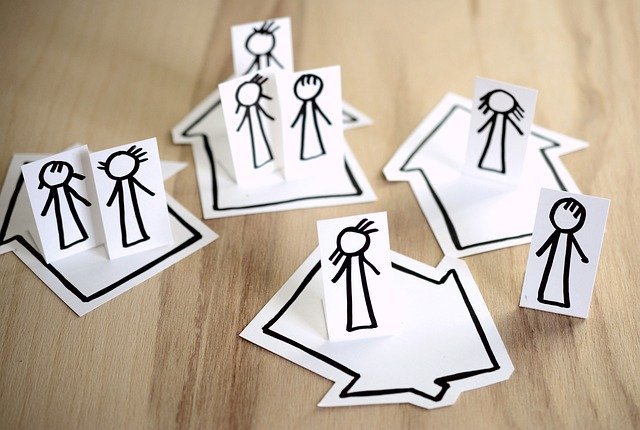Humanity has learned a lot during these past months, and hopefully, the memory of the crisis will last and echo loud for decades to home. There have been a lot of studies conducted regarding the psychological impact of quarantine, and all of them come to a similar conclusion, that quarantine causes acute stress disorder, anxiety, depression, post-traumatic stress disorder, insomnia, poor concentration, and tendency to isolate even more even when there are no quarantine measures in order.
What people have learned most is that staying home can be hard, even when done with the noblest cause as helping the community, your city, your country. Most of you have done good, some better than the others, and some, unfortunately, worse, but have you ever stopped and asked yourself how it would feel to feel safe only at home, locked inside your most safe four walls? Sadly, some people are locked, mentally, emotional, scared, sad, and often can look for help outside, from a professional, in a safe environment.
After this quarantine is over, people can expect other post-quarantine stressors, some due to the financial loss caused by the global corona crisis, some because of the stigmata following those fortunate to survive the virus itself. It will take a while for everybody to feel safe again, to let go of the masks, to freely share a drink. And unfortunately, some people will not be so fortunate to come out of the whole crisis completely normal, you should expect an increasing number of people complaining about anxiety, depression, fear, even paranoia, and those people can be the ones who will remain “locked”.
Mankind made it to the moon, someone is planning an expedition to Mars, and one would think mankind would find a way to help these people. Well, there are many ways!
Technology can be used for good, now more than ever, just by one click away. Telephone counseling is far from new, it has been used for decades, and this method has saved more lives than you could imagine, from suicide and addiction treatment hotlines alone. These past months’ telephone counseling is very popular, mainly because it is the only way to get to counseling and get the help you need, but also because people started informing themselves and getting to know about the benefits of using telephone counseling over the conventional face-to-face therapy.
Unlike hotlines, which are usually serviced by volunteers and mostly rely on donations, and have proved to be one of the mightiest weapons in public mental health service, there is also a way to help yourself by contacting a highly skilled and trained professional.
The benefits of using telephone counseling are surprisingly many:
– Distance counseling – you don’t need to go anywhere, you don’t need to dress up, worry about your look, you don’t even have to get out of your bed. You can do it from home, and for some, this is a heaven-sent, especially for people who are scared now more than ever to leave their house.
– More affordable compared to conventional therapy – telephone counseling can be four to five times cheaper than conventional therapy, and in many states can even be covered by your medical insurance (contact your insurance provider for detailed information).
– Group or single – there is a group or single telephone counseling, and it is confidential, which is very more convenient for a lot of people looking for help.
– It has proved to be highly efficient in treating conditions like anxiety, depression, and substance abuse disorders.
– Get free advice from a professional for the first time, and see if you are indeed in a need of therapy!
Telephone counseling, just as conventional face-to-face therapy can be used for a variety of difficulties:
– Hard moments in your life – losing a close one, or losing your job, or being left by your loved one
– Relationship or marriage problems
– Anxiety and depression
– Grief, guilt, sadness
– Loneliness
When you contact the counseling center for the first time you need to ask specifically for some important information. You need to know the counselor’s background and qualifications, their area of specialty, how long will the counselor be available to you, and normally how much it will costs. You need to be well informed of what will happen if you miss a session and the confidentiality policy of the service provider. It might take a couple of times before you find a counselor suitable to your specific needs, and many of the providers will offer you several solutions, whether it is your request to speak to a man or a woman, or some other unconventional request, all the providers will make the best to serve you best!
Also, do have in mind that there are some cases where telephone counseling is not the best option! If you are suffering from suicidal thoughts or have suffered in the past, you should not rely on telephone counseling. Patients suffering from severe mental health conditions are also not suitable for distance therapy, in these cases face-to-face therapy will be more efficient and will help the patient much more. In conventional therapy, there is much more than verbal communication, and much more is needed for the therapist to determine the right course of therapy, cues that can be only revealed through body talk and different mimics.
In the end, it is up to you to determine the method of how you want to be counseled, traditional or telephone, even if you just want to talk to somebody without the pressure of being judged, or without fear that your secret will be revealed (these talks are strictly confidential). If you need help, you cannot lose anything by trying! Starting from the first call, the counselor will determine if you are suitable for telephone therapy or if you should seek a traditional therapy eye to eye!
References:
- https://www.betterhelp.com/advice/counseling/is-telephone-counseling-therapy-appropriate/
- https://www.thelancet.com/journals/lancet/article/PIIS0140-6736(20)30460-8/fulltext
- https://www.psychologytoday.com/intl/blog/head-games/202003/what-are-the-psychological-effects-quarantine
- https://www.uktherapyguide.com/session-type/phone-counselling-therapy/ctc1012
- https://www.mind.org.uk/information-support/drugs-and-treatments/talking-therapy-and-counselling/about-talking-therapies/
- https://www.mind.org.uk/information-support/drugs-and-treatments/talking-therapy-and-counselling/how-to-find-a-therapist/
- https://www.livescience.com/36432-talk-therapy-phone-depression.html























